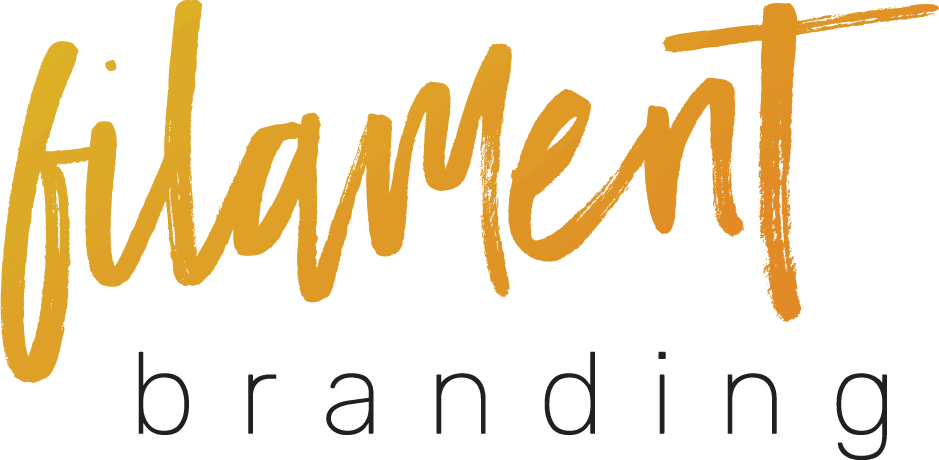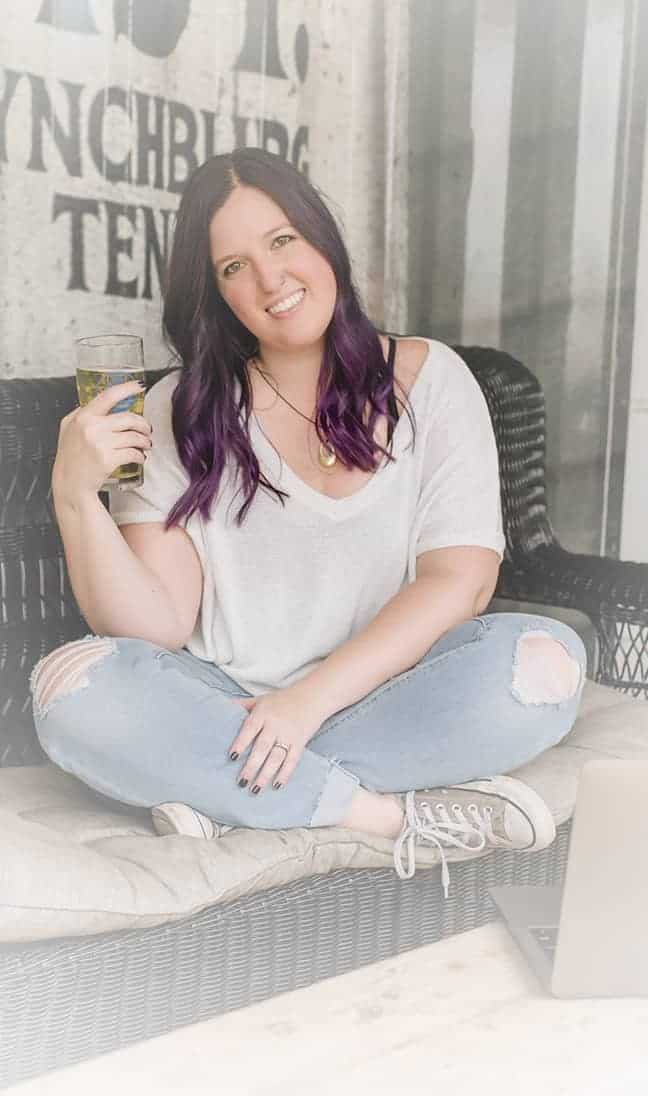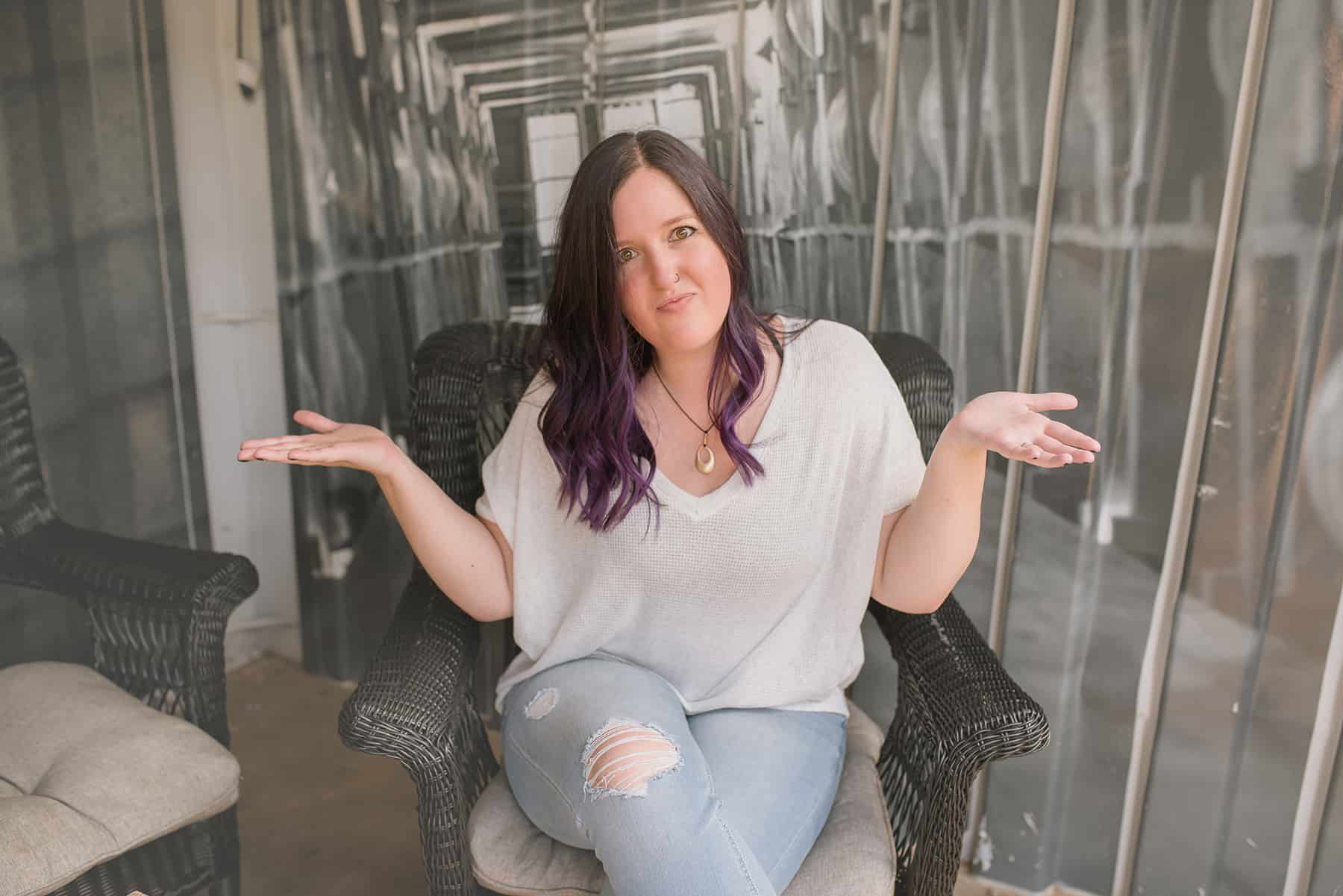Tanya Schofield is an author on a mission to bring some love back to the idea of just telling a story.
Stories are everywhere, from website copy to airport novels, but good ones? Real ones, ones that ring true? That’s the scarcity she’s going to address in this interview.
We’ll be talking about writing stories without baggage, writing to figure out what we’re thinking, and the danger of SHOULD.
Resources mentioned in this episode:
More info about the Melody’s Song trilogy on Tanya’s website: https://www.tanyaschofield.com
Brooke’s archetype quiz: https://brooke-logan.com/quiz/
Don’t forget to SUBSCRIBE and leave a REVIEW
Have you subscribed yet?! I’m adding new episodes EVERY SINGLE DAY and trust me when I say you don’t wanna’ miss out! Click here to subscribe on Apple Podcasts or on Spotify!
If you loved it, please consider sharing the episode with a friend or give us a 5 star review! Reviews make it so much easier for other badasses like you to find the show. On Apple, just select “Ratings and Reviews” and “Write a Review”, and tell me whatcha loved the most. On Spotify (you gotta’ do it on your phone) it’s right under the title. Please and thank you!
Not a great listener? No worries.
Here’s a transcript of the episode![]()
Brooke Logan:
Hello everyone! We are here for #SpotlightSunday with Tanya and her awesome cat ear headphones. They’re super cool. Tanya is amazing and we will just go ahead and get started. I don’t need her to say her name cause I already said it and it’s at the bottom of the screen.
Tanya Schofield:
But that’s the one I knew!
Brooke Logan:
Well you can say your last name. I didn’t say that. I didn’t spoil that surprise.
Tanya Schofield:
Nobody’s ever seen it before.
Brooke Logan:
If you can just tell us a little bit about you and your business and why you started it and all of those amazing details?
Tanya Schofield:
I can do it! Hi, my name is Tanya Schofield. You’ve seen me lurking around. I, once upon a time, in January, I achieved my lifelong dream of becoming a published author. I wrote a book – it’s right here. Oh look, it’s in print and everything. And when I did, I got invited into some of these official writer Facebook groups and realize that writing is a business. It’s all marketing and demographics and nobody was writing stories that they care about anymore and it broke my heart. And then I got super passionate. I mean, I’m passionate about storytelling anyway, but I got really passionate. So that’s why I started Draftcrafting. Which is all about crafting a draft. It’s writing a story and not thinking about an agent or a publisher or the cover or any of the other stuff that doesn’t matter. It’s getting a draft out. It’s telling the story. So that’s what I do. I call myself a writing adventure guide and I help fiction writers write, instead of worry about if they’re doing it right or not.
Brooke Logan:
Cool. Okay. What do you actually go through with your clients? What do you help them with? How do you help them write?
Tanya Schofield:
Well with the gigantic package – which is a 10 week, we’re going to knock out a rough draft of a novel – we first go over the idea and look at where they are, what their progress is already. Because a lot of writers have what they think are fully developed and ideas and kind of aren’t. So we talk about what they need and move on to the different elements – plot and characters and the world and the setting in which is how it all overlays on top of each other to make something really engaging. But it’s super not perfectionist. Most of my job is telling them to stop worrying about the little shit / stuff.
Brooke Logan:
You’re good. You’re good. You can say whatever you want.
Tanya Schofield:
And just getting them to get the ideas down. Because the first draft is no place for end game anxiety. But readers won’t like it if I say that! Well, you’re the only reader right now, so stop.
Brooke Logan:
Cool. Okay. Okay. So how do you feel like branding has helped her business?
Tanya Schofield:
Branding, as soon as I took your quiz I was like, oh, regular guy or Gal. It’s so me. There’s just not a more regular gal in the world because – well, it gave me a lot of clarity. First of all. For me and my clients. First it let me figure out that I’m not one of those teachers in a business suit who’s going to tell you how to do stuff. That’s not who I am. I’m still doing this. I’m writing every single day. I currently have four novels going that I’m writing.
Brooke Logan:
Wow!! Multitasker!
Tanya Schofield:
So when people are like, oh I have this idea and I’m stuck, I don’t know what that’s like objectively because it happened when I was kid, I know it because it happened yesterday. And can actually help them work through it. From a design standpoint, my two personas as it were, my tanyaschofield.com, which is my author site slash page slash me has very similar elements and just slightly different colors than my Draftcrafting logo and things like that. Because I feel like you can’t have one without the other. I wouldn’t have started Draftcrafting if I hadn’t gotten published. And I feel I’d have less credibility as a writing coach if I wasn’t a published author.
Brooke Logan:
It definitely helps you out.
Tanya Schofield:
It really does. And the focus is, and it’s kind of my motto, I solemnly swear I am up to no should.
Brooke Lawson:
I actually just thinking about you earlier today when I was redoing some of my quiz stuff and I was on the Harry Potter section. It reminded me of that. That’s on every single one of your website pages I think, isn’t it?
Tanya Schofield:
It is. It’s the bottom. Because should is a creativity killer in every aspect of writing. Whether you’re writing your website copy or an email or a novel or short story. If you worry about the way you should do it, you won’t do anything. Done is better than perfect. You can work with a sandbox full of crap, but you can’t make something out of nothing.
Brooke Logan:
That is so true. That’s kind of what you wanted to teach us today, right? About the dangers of should?
Tanya Schofield:
That is one of two things. Because I’m equally passionate. I’m super passionate about not doing what you should do. I think I read somewhere that if you’re going to a professional interview, you totally should not wear LED cat your headphones when you’re doing the interview.
Brooke Logan:
But they’re so cool!
Tanya Schofield:
Exactly. They’re very neat. It’s my favorite Christmas present ever. And the sound quality’s amazing. Why wouldn’t I use them? But the problem is –should
is what other people think. And in anything that you’re doing, if you’re doing it for other people, then you’re doing it for the wrong reasons. I kind of feel like if it doesn’t bring you joy, why are you doing it? I didn’t become a writing guide because I hate writing and because I don’t want to help people. I do. Now, I became a car insurance claims representative because it’s what I should do. I should get the job with the small British Gecko and the benefits and do the thing. And yeah, I was good at it, but I was miserable because it’s not what I wanted to do. It was what I should do.
And when I kind of threw that away and was like, no, I don’t want to do what I should do. I got much happier. And much more published. When I talk to clients when they’re stuck, they’re like, well, I have this great idea for a story, but it’s already been done or so and so told me that it’s too much like this other thing, so I shouldn’t even write it. Well, no, that’s not how it works. You write it and then you make it different. But you can’t be paralyzed by other people’s thoughts. Especially, half the danger of should is because it’s not somebody’s actually telling you you shouldn’t do it. It’s you thinking, oh, I shouldn’t do that because they’re going to think this. Well, now you have no data at all or censoring yourself based on what you think people might say. And that’s a gigantic waste of time.
Brooke Logan:
Yes. Yes it is.
Tanya Schofield:
But then it ties, and that also ties into my biggest passion of all – is storytelling. And the importance of stories. And the fact that that’s what makes us human. Think about it. Novels and screenplays and the news and advertising and religion and history and science. It’s all us just telling each other stories about what happened or what is happening or what could happen. People don’t connect to other people. I could see you in the grocery store and not feel a connection. But if you dropped the milk and made a mess, I’m like, Oh, I’m a klutz, too. I’ll help clean it up. And now we have a connection and we have a shared story. And that’s how things grow. Humanity is about connections through story. And that’s why certain copy on websites and stuff, if they’re using all the right buzz words and Google is paying attention to them, well that’s great, but where’s the story? Because Google ain’t buying your stuff, I am. So if you’re not talking to me, then why should I stay there?
Brooke Logan:
Exactly. That’s so true. And I love that dropping the milk. That’s such a good way to get your point across. That’s awesome.
Tanya Schofield:
Look, I’m awkward, too.
Brooke Logan:
That would be me dropping something in the grocery store.
Tanya Schofield:
Simon Sinek, I’m probably pronouncing that wrong, but he’s the guy who wrote Leaders Eat Last, he has the golden circle. He says that people don’t buy what you do. They buy why you do it. It’s exactly the same thing in fiction writing, in blog writing, in copywriting, in everything. Because everything is a story. Whether you’re trying to get somebody to buy a handbag or you’re trying to get them to buy your novel. People look for themselves in other people’s stories. They find that mirror and if they see themselves then they’re going to buy. Then they’re going to be in there. That’s why representation is so important. And since my specialty is fiction, I of course want all the stories. I want there to be so many stories that everybody has hundreds of mirrors to find themselves in. And because the industry is really leaning towards this formula novel – get it out quick you can get the money and then make the next one and make the more money – I prefer a more authentic approach and that’s what I hope to do with my business.
Brooke Logan:
And you do such a good job of it, too. Let me share my screen and we can look at Tanya’s website.
Tanya Schofield:
So much fun.
Brooke Logan:
I love how you do such a great job of capturing your archetype one, but just your voice on the page. I’ve talked to a million times, so I know. But just reading this and then talking to you, it’s like, it’s you. This is you on a website. All of it. All of the gifs and everything and where’s this one?
Tanya Schofield:
I do regret that I can’t speak in gif.
Brooke Logan:
Yeah. That would be cool. But no, this is the exact perfect thing to do on a website. Honestly. Everybody should go through and read this page. too. Even if you’re not a writer. Just because it’s such a great example of getting that personality into the copy and still getting your point across. And, like you said a second ago, making those connections. Your ideal clients will connect with this and some people won’t, and that’s okay because they’re not your ideal clients. I’s such a good example. And then we have Bob Ross. Bob is the best. He really is
Tanya Schofield:
We don’t make mistakes. We only make happy accidents.
Brooke Logan:
Bob Is awesome. Her website is really cool. There’s also, in the event, there’s your three day writing course, we have that pinned. Do you want to talk about that a little bit and, and who it’s for?
Tanya Schofield:
That was super fun to create. I really enjoyed that. It takes you through, anyone actually, through the process of writing the story over the course of three days. And this is actually three separate tracks. If you were a writer, I don’t know if you’re on that page, but there’s three different kinds of writers. There’s the eager writer who hasn’t done it before, but really wants to and is super excited about it. There’s the experienced writer who has done it and wants to get that excitement back. Like, oh, this is old hat. I do it everyday, but I still want to be excited about it. And then there’s the extra writer, the extra writer is the one who has 37 works in progress, 50 new ideas and there’s another one in a way and they multiply like triples.
I set up three different series to go through the same process, but just geared towards the problems that each of those types of writer would have. In the first one, it goes through what to write about, how to generate an idea, how to get excited about it, and how to play and find something that’s fun. The second one talks about how to plot. How to get from the beginning to the end or how to navigate that middle. And then the last one is how to wrap it up – maybe not neatly – but in a way that you can then work with it later and build something else about it. And of course, it’s all full of gifs and me everywhere you turn.
Brooke Logan:
As it should me.
Tanya Schofield:
I did that and that was super fun, but I can’t stop creating content.
Brooke Logan:
That’s a good problem to have. Let me tell ya.
Tanya Schofield:
The other week I took one of the ideas – in the very first email on the how to write a story is about generating ideas. And one of the, I think seven ways, I give you to generate ideas is to use dice. I took that idea and wrote a 40 something page book. It took me, I don’t know, a week and a half and I wrote an entire book of over 40 dice-based generators. How to customize your character, what to have your world be like, everything from hair and eye color to Zodiac sign and Meyers Briggs type indicator and all of this stuff and how to work it into a novel. I wrote that. And it was like, oh, now what do I do I do. Also today, I designed an entire email series to walk people through the generators.
Brooke Logan:
Dang, you’re like a content creating machine!
Tanya Schofield:
And writing four novels. Don’t forget that I’m doing all of that, too.
Brooke Logan:
How fun, how fun. But you can tell you’re like, you’re so passionate about it and it’s so fun and exciting for you. It’s not like, a lot of people are like, oh, I can’t create content. It’s so hard. I hate this. And like, that’s so awesome.
Tanya Schofield:
Everything is content if you can tell a story about it. That’s the whole point. One offhand phrase that you may say while you’re writing your copy can launch a huge thing. You know, everything is content because everything is story. That’s what I’m trying to get people to understand.
Brooke Logan:
And that’s so true. That’s so true. I love it. That’s awesome. That’s amazing. Do you want to talk any more about your book? Because I know it’s not just one book, right?
Tanya Schofield:
Oh no, no.
Brooke Logan:
You held it up real quick and then put it right back down.
Tanya Schofield:
This is book one in the Melody’s Song trilogy. I am currently, one of the four novels that I’m working on, is book two. I’m doing the edit, my publisher’s edits for book two, that will be released on August 7th. And then book three is slated for the beginning of 2019.
Brooke Logan:
That’s so fast, that seems really fast!
Tanya Schofield:
Well this because I had the whole story written. That’s another thing I talk about in my course.
Brooke Logan:
Just Tell the Damn Story. Write the damn story.
Tanya Schofield:
A lot of writers get really worried. They’re like, oh this is too long or oh this is too short. Or oh no publisher is going to get it. I wasn’t worried about that when I was writing Melody’s Song. I was just telling her story. So when it finished, it was way too long for traditional publishing. But I didn’t care. I’m a honey badger. I don’t care. But then I spent a year and I split it up. And Oh look, this story that I wrote kind of suits a trilogy really well. And then half into a bottle of Riesling I saw a Facebook ad for a publisher and got brave. And thus I was published.
Brooke Logan:
That’s amazing.
Tanya Schofield:
But while I’m doing that, I’m writing a completely new one and editing the one I wrote last November because November is national novel writing month and I do that every year. I write a book every November.
Brooke Logan:
Wow!
Tanya Schofield:
I’ve done it for 11 years now.
Brooke Logan:
That’s so cool. I’m learning about this whole new writers world!
Tanya Schofield:
Because stories, man. You just tell stories.
Brooke Logan:
Yeah. Well and like you said earlier, it applies to everything in your whole life, not just business and not just fiction writing. Everything.
Tanya Schofield:
Everything is a story. And think about the products that you buy or the commercials that you gravitate towards. The ones that we watch on Superbowl Sunday are the ones that tell us a story. And it could be a funny story and it could be a tear jerker story, but we remember them because they’re stories. And that’s was kind of my approach to copy before I found your quiz, before I did the brand, was to tell the story. This is my story. This is what I want. And you helped me narrow it down and get super clear on stuff. But everything is, I’m going to say it a million times. Everything is story.
Brooke Logan:
But it’s so true and you gotta say it a million times.
Tanya Schofield:
And anyone can tell a story. Anyone.
Brooke Logan:
Yeah, that’s something you haven’t really talked about yet. But I’ve heard you say before. People are scared to…
Tanya Schofield:
Yeah, everyone’s like, oh I can’t possibly write, or nobody wants to hear my story. There are 7 billion people on this planet. Somebody wants to hear it. I can guarantee. But you don’t have to have a degree in writing or journalism. I don’t. Don’t have degree in journalism. I managed two newspapers for a couple of years because you just figure it out. The words that they are, and like I said before, finished is better than perfect. Even if it’s an imperfect story, even if it’s flawed or missing some pieces, well you can always go back and put those in later. But you have to just take that first step. Do the overused stuff – it was a dark and stormy night. Once upon a time.
Brooke Logan:
Just start somewhere.
Tanya Schofield:
Just start somewhere. I mean, think about it this way. I saw this in a meme. Whenever you feel bad about your ideas and you don’t think you have anything valuable to say, remember, someone in the meeting said, let’s make a movie with a tornado full of sharks.
Brooke Logan:
Oh my gosh, those are so stupid!!! My husband loves them, though.
Tanya Schofield:
I’ve seen all of them except the last.
Brooke Logan:
They’re so dumb, but he loves them. But you’re right – somebody will love it.
Tanya Schofield:
Somebody will love it. You just have to do it and I can help you do it.
Brooke Logan:
And you’re so good at it, too.
Tanya Schofield:
And you’ll definitely laugh.
Brooke Logan:
Yeah, you’ll definitely laugh. And your stuff is cool, too, because you’re the perfect representation of give value first. You can write a whole freaking novel before you ever pay Tanya a penny with her free value. She’s amazing.
Tanya Schofield:
It’s my content problem. I just can’t stop making it.
Brooke Logan:
I mean that’s a good problem to have. So imagine the value people will get if they do work with you, it’ll blow your mind.
Tanya Schofield:
That’s the idea, anyway. Oh my God, I had much fun setting up the 10 week program. There are lessons and there are handouts and there are ctivities and it’s just so much fun. I love doing it.
Brooke Logan:
That’s awesome. Well and I’m sure your ideal clients love it, too. So remind me – is it young adult fiction? Is that?
Tanya Schofield:
Yes. Well I am genre fluid, thank you very much. I don’t like labels.
Brooke Logan:
That is on your website. It is. I remember seeing it because I pointed it out and laughed that it was awesome.
Tanya Schofield:
Because it’s genre fluid. This particular trilogy – here, I’m going to show it again because third time’s a charm – this particular trilogy is young adult fantasy. There are some adult themes. Don’t give it to your 12 year old.
Brooke Logan:
Disclaimer!
Tanya Schofield:
I’ve been told that it’s more geared towards adults who read young adult and there’s a lot of us who read young adult fiction because it’s not as stodgy as grown up fiction.
Brooke Logan:
But your packages? And you work with any?
Tanya Schofield:
Oh I work with anybody at this point. I don’t know. I feel like the premise is the same, but I prefer fiction because there’s many possibilities. You can tell every truth in the world.
Brooke Logan:
Yeah. And like you were saying earlier, a lot of your program is around character and plot and all of those things that, that’s not really a part of nonfiction usually. But you could, yeah?
Tanya Schofield:
Well it’s – in what order do you tell people? Like are you Tarantino? Do you bounce all over the book? Or do you tell it in order? And that voice, that thing that is so specific to the author that – thank you for bringing that up – because that’s kind of what I pride myself on. I don’t tell anybody how to do anything. Cause bitch, and I just figured it out. But what I do, is help them find a way that works for them. If they want to write the scenes in order, then I can support them in doing that and tell them how to layer stuff in. If they’re like, only want to write the scenes that they’re inspired to write, we can work with that, too, and we can stitch them together later. It’s whatever works for them.
Brooke Logan:
That’s awesome.
Tanya Schofield:
Because there’s approximately 400 million books on how you “should” do it. I’ve read approximately 200 million of them and they all say the same thing. You “should” follow this plan or you “should” take these steps. And that may work for the author and it might work for his target audience or her target audience, but my target audience doesn’t really fit a lot of “shoulds”.
Brooke Logan:
Yeah and that’s just another parallel. In branding and knowing your ideal clients and knowing your audience and what works for them or not is step one. It’s just like with everything else. Know your audience.
Tanya Schofield:
That was actually my hardest step when I was going through and working with you, was defining my ideal client. Because I only knew what they weren’t. But when I talk about characters and I talk about story and everything, finding what doesn’t work is just as important as finding what does because you can use the negative space to shape what’s there. I hear rumors that Edison found a hundred things that didn’t work before he invented the light bulb and it worked out pretty well for him.
Brooke Logan:
Pretty well for him, yep. That’s fun. Well that’s so exciting! We’ve talked a ton about really awesome stuff today!
Tanya Schofield:
We have! And I know we’re supposed to keep it short, I’m so sorry.
Brooke Logan:
No! You’re totally fine. I have them all scheduled for an hour and it’s just kind of – we want valuable information! All of it was super valuable. That’s what we’re going for. That’s awesome. Unless you have anything else to say.
Tanya Schofield:
Thank you for watching and not laughing at me too much.
Brooke Logan:
No, no. And your awesome headphones are attracting everybody, I’m sure.
Tanya Schofield:
Cause they can do all kinds of stuff – there you go, they change colors.
Brooke Logan:
Oh awesome. How fun. Well cool. I will put, in the comment section, a link to Tanya’s website and her book if you’re interested in that.
Tanya Schofield:
It makes a great gift!
Brooke Logan:
Yeah! And if you are a writer, you definitely need to check her out because her free stuff is effing amazing. It’ll blow your mind.
Tanya Schofield:
Even if you don’t know if you want to write a story or not, just give it a try. You may find out that you love it. I mean don’t, if you don’t want to. But I made it. And it’s neat.
Brooke Logan:
And it has lots of gifs. Just like everything else you do! Gifs are amazing!
Tanya Schofield:
I think one of them, I forget which one, actually has a link to a short story that I wrote that my daughter illustrated all about “should.”
Brooke Logan:
Yes. And I’ve seen it and it’s adorable and amazing. It’s worth it just for that, for real.
Tanya Schofield:
Cause again, I just make content.
Brooke Logan:
It just comes out. That’s awesome. All right, well that’s all we have today. I’ll be back on Thursday. Maybe sooner. I don’t know. I’m just kinda winging it with the third one.
Tanya Schofield:
What are we drinking on Thursday? It should be rum. Is what it should be.
Brooke Logan:
Okay, so I’ll think of an r word for something to talk about. I can do rum. Okay. I’ll be thinking about that. If anybody else or Tanya has any ideas on what you would to talk about on Thursday, I’m always open to ideas.
Tanya Schofield:
Thank you so much for having me! This has been, really, way more fun. Because I was terrified and this was really easy. So everybody who’s thinking about doing it, totally do it. It’s awesome.
Brooke Logan:
Yes. That’s so, oh, that’s exactly what I want to hear! I’m so excited. Okay, everybody have a good evening and we will talk soon.
Can’t get enough of this stuff?!
Check out a few more blog posts
How to use the MOON for personal growth with Amy F. Aurore
Amy F. Aurore is a spiritual life coach and teacher and she’s coming in for #SpotlightSunday to talk to us about a really cool way to look at the moon and show us how it can be used as a tool for personal growth.
How to balance YOUR priorities without screwing up your kids with Chrystal Lofton
Chrystal Lessard Lofton is coming for #SpotlightSunday to share tips & ideas of how to balance YOUR priorities with your family obligations without losing your mind, your identity, or screwing up your kids!
How to create deeper impact and deeper pockets with Samoa Blanchet
Samoa Blachet is a Quantum Cash & Clients Coach at her biz Ink’d by Samoa. She’s coming in for #SpotlightSunday to share how to become a Limitless Leader.









0 Comments